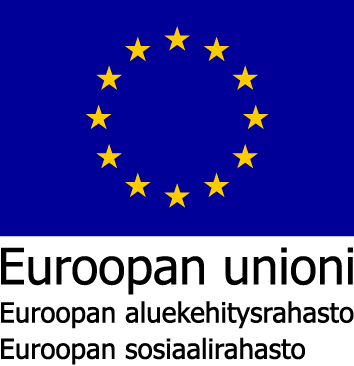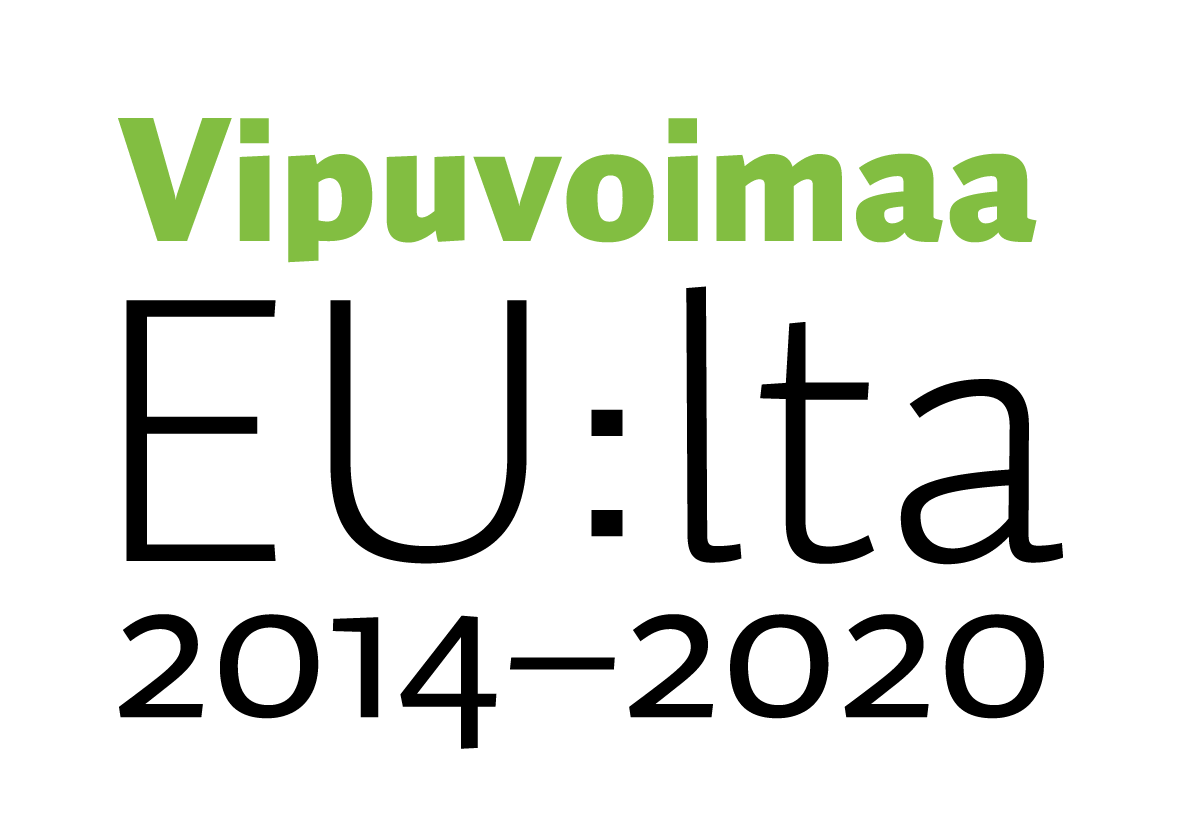

 |
 |
Hankekoodi: S22181
Hankkeen nimi: ARCTA FAST -KOULUTUSMALLI
Toimintalinja: 4. Koulutus, ammattitaito ja elinikäinen oppiminen
Erityistavoite: 9.2. Kasvu- ja rakennemuutosalojen koulutuksen tarjonnan ja laadun parantaminen
Suunnitelman mukainen toteutusaika: Alkaa 1.8.2020 ja päättyy 30.4.2023
Toiminnan tila: Toiminta päättynyt
Vastuuviranomainen: Pohjois-Pohjanmaan elinkeino-, liikenne- ja ympäristökeskus
Hakijan virallinen nimi: Lapin Yliopisto
Organisaatiotyyppi: Yliopisto
Y-tunnus: 0292800-5
Jakeluosoite: Yliopistonkatu 8
Puhelinnumero: (016) 341 341 (vaihde)
Postinumero: 96300
Postitoimipaikka: ROVANIEMI
WWW-osoite: http://www.ulapland.fi
Hankkeen yhteyshenkilön nimi: Timo Jokela
Yhteyshenkilön asema hakijaorganisaatiossa: Professori
Yhteyshenkilön sähköpostisoite: timo.jokela(at)ulapland.fi
Yhteyshenkilön puhelinnumero: 040 739 6034
Hakijoiden lukumäärä tai tuen siirto -menettely:
Hanke vastaa tunnistettuun tarpeeseen tuottaa uutta osaamista kouluttamalla luovien alojen toimijoita muutoksessa olevaan ja kasvavaan tapahtumaperustaiseen pikapeleihin ja -taiteisiin perustuvaan palvelutuotantoon. Luovan alan ja taiteen työmarkkinoiden osaamisodotukset ovat pirstaloituneet ja hetkellistyneet tapahtumaperustaisten sisällöntuotantopalveluiden kasvun, taiteen markkinoiden muutosten sekä digitalisoitumisen mahdollistamien aineettoman arvonousun tuotteiden ja palveluiden myötä. Uusia taiteen osaamisalueisiin perustuvia työnmuotoja ja toimeentulon mahdollisuuksia on syntynyt erityisesti tapahtumien yhteyteen lyhytkestoisiin tarpeisiin. Festivaaliperustaista innovaatiotoimintaa on kehitetty erityisesti Innofest (https://innofest.co) toimintakonseptin perustuen. Suomessa erityisesti Oulussa ja Seinäjoella on panostettu tapahtumaperustaiseen kehittämiseen (https://intoseinajoki.fi/buustiatapahtumista/ ja https://futurevents.oulu.com.
Koulutuksen tavoitteena on lisätä yhteistyötä työelämälähtöisessä tapahtumaperustaisessa toiminnassa oppilaitosten ja luovien alojen toimijoiden välillä. Yhteiskehittämisessä tapahtumien kanssa tavoitellaan uusia oppimisen mahdollisuuksia ja työtilaisuuksia luovien alojen toimijoille. Koulutus tukee työelämälähtöisenä luovan talouden kehittymistä tapahtumaympäristöissä. Hankkeessa luodaan ja kehitetään yhteistoiminnassa moniammatillinen ja kolme koulutustasoa läpäisevä koulutusmalli ja –moduuli, jossa luovan talouden ja yrittäjyyden tapahtumaperustainen taiteen, teknologian ja liiketalouden uusi osaaminen yhtyy ja tukee osallistujien fast tuotanto-osaamista tapahtumien yhteydessä.
Hankkeen varsinaisena kohderyhmänä luovilla aloilla toimivat ja sille valmistuvat henkilöt sekä Lapissa järjestettävät tapahtumat ja niissä toimivat mikro- ja pk-yritykset sekä tapahtumia tilaavat tahot. Välillisenä kohderyhmänä on tapahtumiin osallistuvat yleisöt ja tapahtumista hyötyvät matkailu- ja majoitusalan toimijat sekä kunnat. Lisäksi oppilaitosten henkilökunta saa hankkeessa uutta osaamista.
Koulutushanke etenee kolmessa vaiheessa, joiden avulla luodaan, toteutetaan ja implementoidaan oppilaitosten yhteistyössä toteuttama 20 opintopisteen valinnainen opintokokonaisuus. Joustava työelämälähtöinen koulutus voi tarjota opiskelijoille laajemmankin kokonaisuuden valituista opintopoluista riippuen.
VAIHE 1. "TAPAHTUMAPERUSTAISEN FAST OSAAMISEN KEHITTÄMINEN" (TP2, TP3, TP4, TP5 ja TP6)
Fast –tuottamisessa tarvittavan osaamisen kehittäminen maakunnan tapahtumaperustaisiin erityistarpeisiin soveltuvaksi. Koulutuksen sisältöjen, organisoinnin ja toteutuksen laadullinen varmennus sekä koulutuksen yhteistyömallien jalostaminen alalle soveltuvaksi (työelämälähtöisyys, taideperustaisuus ja projektipedagogisuus).
VAIHE 2. " TAPAHTUMAPERUSTAINEN TYÖELÄMÄLÄHTÖINEN KOULUTUS JA PILOTTITYÖPAJAT TAPAHTUMISSA" (TP2, TP3, TP4, TP5 ja TP6)
Työelämälähtöisen koulutuksen ja fast-tuotantotapojen pilotointi yleisölähtöisesti kuudessa tapahtumassa. Käytännössä tämä tarkoittaa eri tyyppisten tapahtumien yhteydessä järjestettäviä koulutuksen ja yhteiskehittämisen työpajoja, jotka tähtäävät uusien luovaa alaa tukevien toimintatapojen synnyttämiseen.
VAIHE 3. "KÄYTÄNTEIDEN MALLINTAMINEN JA JAKAMINEN" (TP 7)
Arviointi ja hankkeen tulosten jalkauttaminen maakunnallisesti, kansallisesti ja kansainvälisesti. Hyvien käytänteiden esittely erilaisissa verkostoissa ja tapahtumissa. Lisäksi järjestetään seminaari ja toteutetaan julkaisu, joissa nostetaan esiin hankkeen tulokset. Toiminnan kiinnittäminen osaksi oppilaitosten työelämälähtöistä opetusta, osaamiskiihdyttämöä (mm. ARCTA), kehittämistoimintaa ja tutkimusta.
Hankkeen tuloksena koulutukseen osallistuvien henkilöiden, koulutusorganisaatioiden ja tapahtumajärjestäjien ja sidosryhmien osaaminen kasvaa. Hankkeen koulutus- ja kehittämismallia pilotoidaan yhteensä kuudessa eri tyyppisessä tapahtumassa, jotka toimivat osaamisen välittöminä jalkauttajina. Hankkeen tuloksena tarvittava osaaminen tapahtumien toteutuksen varaisuusasteen kasvattamiseksi lisääntyy, luoden samalla lisää työllistymismahdollisuuksia erityisesti nuorille alan oppilaitoksista valmistuville toimijoille. Hankkeessa rakentuu Lapin kolmen luovien alojen koulutustason tapahtumaperustainen oppimisen ja kehittämisen kohtaamotila, joka palvelee alan työllistymistä ja uutta yritystoimintaa. Koulutuksen kehittämisen ja pilotoinnin mahdollistavan ketterän ja liikuteltavan ARCTA -toimintaympäristön suunnittelu ja toteutus tehdään osana taiteiden tiedekunnan Lapin liitolle valmistelemaa ILO -hanketta.
Koulutus toteutetaan seitsemässä työpaketissa, joiden sisällöt pohjautuvat Lapin liiton esiselvitysvaiheessa esiinnousseisiin teemoihin. Kehittämisen ja toteutuksen vastuualueet on jaettu toimijoiden kesken osaamiseen sekä koulutus-, kehittämis- ja tutkimusaloihin pohjautuen. Kukin työpaketti tuottaa osaamisen kehittämiseen (koulutukseen) oman osaamisensa, joiden toteutusta TP 1 hallinnoi ja koordinoi sekä TP 2 ohjaa sisällöllisesti ja pedagogisesti vastaten mielekkäiden työelämälähtöisten opintopolkujen syntymisestä. Hankkeessa kehitettävät koulutuskokonaisuudet siirretään soveltuvin osin oppilaitosten perusopetukseen.
Hanke kiinnittyy erityisesti Lapin taiteiden tiedekunnan ILO investointi- ja kehittämishankkeisiin, Lapin AMK:n FrosBit laboratorioiden sekä Lappian estraditekniikan koulutukseen.
Hankkeen varsinaisena kohderyhmänä luovilla aloilla toimivat ja sille valmistuvat henkilöt, Lapissa järjestettävät tapahtumat ja niissä toimivat mikro- ja pk-yritykset sekä tapahtumia tilaavat tahot.
Välillisenä kohderyhmänä on tapahtumiin osallistuvat yleisöt ja tapahtumista hyötyvät matkailu- ja majoitusalan toimijat sekä kunnat. Lisäksi oppilaitosten henkilökunta saa hankkeessa uutta osaamista.
Myönnetty EU- ja valtion rahoitus: 417 435
Toteutunut EU- ja valtion rahoitus: 392 914
Suunniteltu julkinen rahoitus yhteensä: 521 795
Toteutunut julkinen rahoitus yhteensä: 491 144
Maakunnat: Lappi
Seutukunnat: Rovaniemen, Kemi-Tornion, Tunturi-Lapin, Torniolaakson, Itä-Lapin, Pohjois-Lapin
Kunnat: Enontekiö, Sodankylä, Ranua, Ylitornio, Savukoski, Pello, Kolari, Keminmaa, Pelkosenniemi, Kittilä, Tornio, Simo, Rovaniemi, Salla, Muonio, Inari, Posio, Kemijärvi, Utsjoki, Tervola, Kemi
Jakeluosoite:
Postinumero:
Postitoimipaikka:
Suunniteltu: 25
Toteutunut seurantatietojen mukaan: 14
Suunniteltu: 60
| Välitön | Välillinen | |
| Ekologinen kestävyys | ||
| Luonnonvarojen käytön kestävyys | 5 | 4 |
| Tapahtumien toteutuksessa huomioidaan vihreät arvot ja kierrätys. | ||
| Ilmastonmuutoksen aiheuttamien riskien vähentäminen | 0 | 0 |
| Ei vaikutuksia. | ||
| Kasvillisuus, eliöt ja luonnon monimuotoisuus | 0 | 0 |
| Ei vaikutuksia. | ||
| Pinta- ja pohjavedet, maaperä sekä ilma (ja kasvihuonekaasujen väheneminen) | 0 | 0 |
| Ei vaikutuksia. | ||
| Natura 2000 -ohjelman kohteet | 0 | 0 |
| Ei vaikutuksia. | ||
| Taloudellinen kestävyys | ||
| Materiaalit ja jätteet | 0 | 0 |
| Tapahtumien toteutuksessa huomioidaan vihreät arvot ja kierrätys. | ||
| Uusiutuvien energialähteiden käyttö | 0 | 0 |
| Ei vaikutuksia. | ||
| Paikallisen elinkeinorakenteen kestävä kehittäminen | 8 | 7 |
| Tapahtumien aluetalousvaikutukset kasvavat luovan talouden osaamisen myötä. | ||
| Aineettomien tuotteiden ja palvelujen kehittäminen | 9 | 8 |
| Luova talous perustuu pääosien luovaan aineettomaan työpanokseen. | ||
| Liikkuminen ja logistiikka | 6 | 5 |
| Koulutusmalli perustuu tapahtumiin jalkautumiselle. Opetuksen järjestäminen edellyttää uusia siirtymis- ja tilaratkaisuja. | ||
| Sosiaalinen ja kulttuurinen kestävyys sekä yhdenvertaisuus | ||
| Hyvinvoinnin edistäminen | 7 | 7 |
| Koulutus ja uusi osaaminen lisäävät hyvinvointia laaja-alaisesti (mm. taloudellinen ja elämän hallintaa liittävät tekijät) | ||
| Tasa-arvon edistäminen | 8 | 8 |
| Oppilaitosten toiminta on tasa-arvoa edistävää. Koulutuksellinen yhteistyö lisää kohtaamisia tapahtumatoimioiden ja koulutusorganisaatioiden välillä. | ||
| Yhteiskunnallinen ja kulttuurinen yhdenvertaisuus | 3 | 3 |
| Oppilaitosten toiminnan ytimessä. | ||
| Kulttuuriympäristö | 8 | 8 |
| Tapahtumat ovat merkittävät osa alueiden identiteettiä ja elinvoimaisuutta. Osaamisen ja sisällön omavaraisuus lisää paikallista merkityksellisyyttä. | ||
| Ympäristöosaaminen | 2 | 2 |
| Opetusympäristön liikuttamisessa huomioitava asia, joka on myös tapahtumajärjestäjien osaamisen keskiössä. | ||
Hanke vastasi tunnistettuun tarpeeseen tuottaa uutta osaamista kouluttamalla luovien alojen toimijoita muutoksessa olevaan ja kasvavaan taiteeseen ja pelillisyyteen perustuvaan tapahtumatuotantoon. Luovan alan ja taiteen työmarkkinoiden osaamisodotukset ovat pirstaloituneet, monialaistuneet ja hetkellistyneet. Uusia taiteen osaamisalueisiin perustuvia työmuotoja ja luovien alojen toimeentulon mahdollisuuksia on syntynyt erityisesti tapahtumien yhteyteen lyhytkestoisiin tarpeisiin.
Yhteiskehittämisessä kolmen koulutusasteen luovien alojen (yliopisto, ammattikorkeakoulu ja ammattiopisto) ja tapahtumatoimijoiden kanssa suunniteltiin ja pilotoitiin uusia tapahtumaperustaisia opiskelutapoja ja luovien alojen toimijoiden työtilaisuuksia. Hankkeessa kehitettiin moniammatillinen ja kolmen koulutustasteen tarpeita ja osaamisalueita integroivan koulutusmalli ja opintokokonaisuus. Kokonaisuudessa yhdistyy luovan liiketalouden ja yrittäjyyden, tapahtumaperustainen ketterän taiteen, pelillisyyden ja tapahtumatekniikan uusi osaaminen ja tukee osallistujien ketterän osaamisen lisääntymistä tapahtumatuotannoissa.
Koulutusmallin ytimessä on työelämälähtöinen tapahtumaperustainen toiminta, ilmiöpohjaisuus, projektioppiminen ja taiteen näkyvyyteen ja vaikuttavuuteen pyrkivä projektipedagogiikka.
Koulutusmallinkehittämishanke eteni kolmessa vaiheessa; ensin suunniteltiin ja kehitettiin, sitten pilotoitiin kuudessa erilaisessa tapahtumassa ja lopuksi arvioitiin ja implementoitiin oppilaitosten yhteistyössä toteuttama 30 opintopisteen valinnainen tapahtumaperustainen opintokokonaisuus. Joustava työelämälähtöinen koulutus voi tarjota opiskelijoille suppeamman tai laajemman kokonaisuuden valituista opintopoluista riippuen (5–30 op).
Hankkeen varsinaisena kohderyhmänä olivat luovilla aloilla toimivat ja sille valmistuvat henkilöt sekä Lapissa järjestettävät tapahtumat ja niissä toimivat mikro- ja pk-yritykset sekä tapahtumia tilaavat tahot. Välillisenä kohderyhmänä olivat tapahtumiin osallistuvat yleisöt ja tapahtumista hyötyvät matkailualan toimijat sekä kunnat. Lisäksi oppilaitosten henkilökunta sai hankkeessa uutta osaamista.